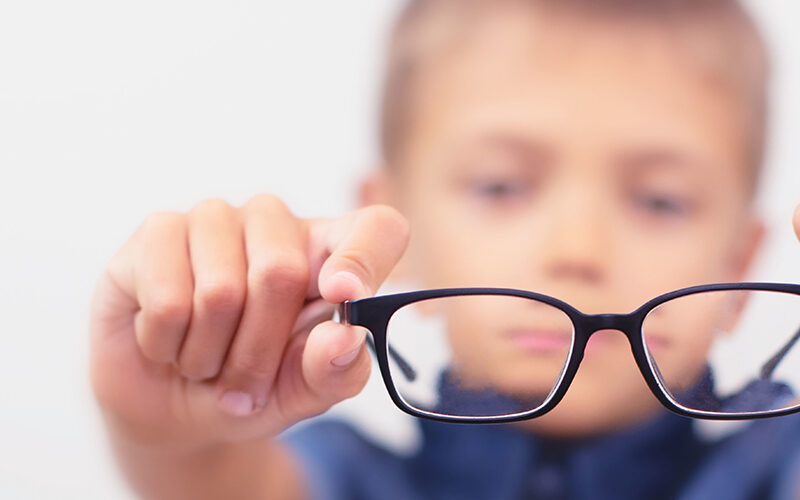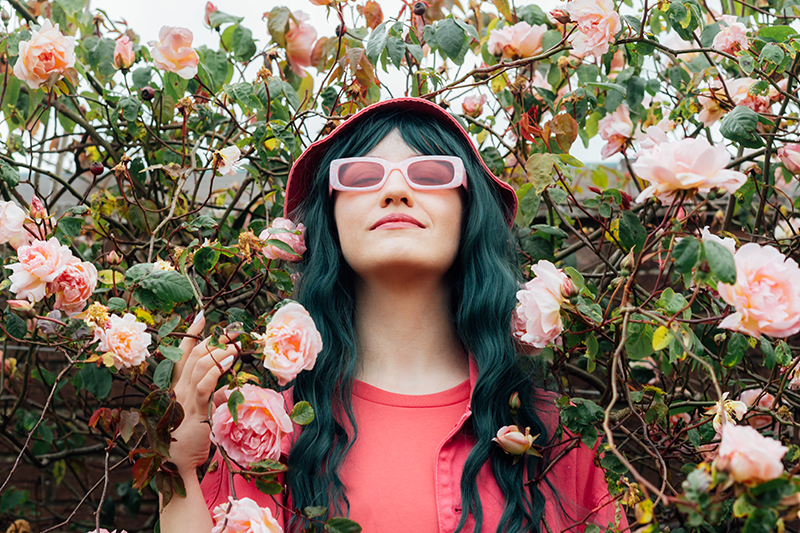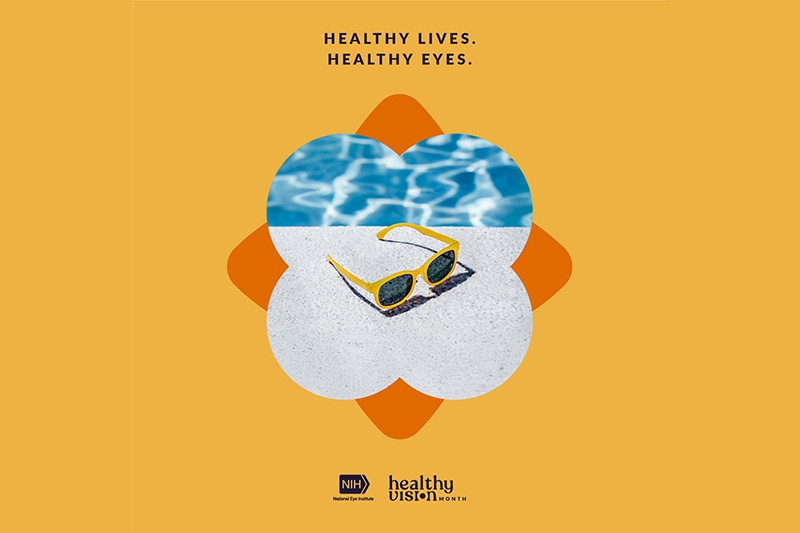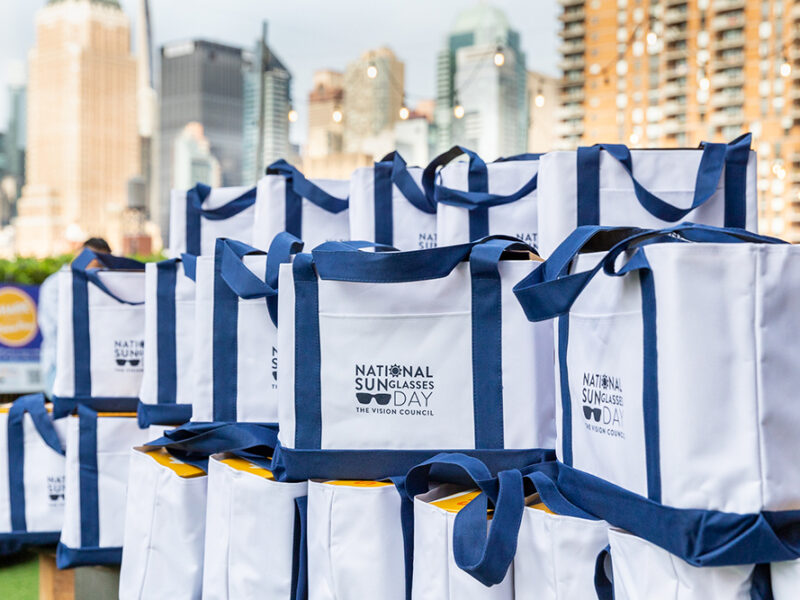The Vision Council was pleased to connect with Dr. Rachael Wruble, OD of Belmont Eye to focus on what is happening with children’s vision during the current pandemic. Dr. Wruble was named 2017 Young Optometrist of the Year, 2018 Young Optometrist of the South, and 2018 Women in Optometry Theia Award. She completed her Bachelor of Science in Chemistry with High Honors followed by her Doctorate of Optometry Magna Cum Laude from Michigan College of Optometry in 2009.
She also volunteers at Gaston Family Health Services providing eye exams and participates with Belmont Community Organization.
Here is some of Dr. Wruble’s great advice surrounding eye health and our kids.

With increased time at home for our kids equating to more screen time – whether for online learning or leisure activities – what should we be watching out for to keep their vision safe?
I would love to tell you my kids have no screen time, but this is just not true. The kids are doing video calls with friends and webinars with teachers. That is our life right now. What I recommend for screen time at home would be the following.
- Try putting a Matte screen filter on the screen to reduce glare.
- Adjust your lighting. Try increasing the contrast on the screen to reduce eye strain.
- Take a step back from your screen, keeping it an arm’s length away.
- Follow the 20/20/20 Rule – Take a break every 20 minutes by looking at an object 20 feet away for 20 seconds. Looking further away will give your eyes a moment to relax.
- Blink! Blinking helps produce tears to lubricate your eyes. Artificial tears or eye drops can also help.
- Limit Bedtime Screens. – There are studies that show that devices usage just prior to bed may affect the body’s sleep cycle. Try putting devices down 2 hours prior to bedtime.
There is also more time for free play, or unstructured activities with many organized sports and activities cancelled. What are some important things to remember? Does playing outside help with vision?
We recommend kids wear helmets when riding bikes along with sports goggles or polycarbonate impact-resistant sunglasses when playing sports. Over the past several weeks I have seen numerous eye lacerations from weed-whacking, corneal abrasions from sticks in the eye, and even a retinal detachment from a baseball. Those are just off the top of my head. All of these could have been prevented with the use of protective eyewear.
It is important to note that playing outside allows the eyes to have a break from focusing and straining on screens. The eye muscles become relaxed and the kids burn energy! It is a good idea to remember UV-blocking sunglasses too! As parents we are often concerned about slathering our kids up with the best sunblock but forget their eyes. UV rays from the sun can cause a sunburn to the eyes and it puts children at risk for long term eye health issues such as cataracts and macular degeneration.
If a child does not wear glasses for vision correction, do they need eye protection for other activities? If they do wear glasses or contacts for vision correction, do they need different or additional eye protection?
For children, like mine, who do not wear vision correction, I still recommend they wear protective sunglasses outside. For children who wear glasses currently, I recommend polycarbonate material that is impact resistant and transition lenses that change color while outside. For children who wear contact lenses, I recommend having a back-up pair of glasses and a separate pair of sunglasses for outside.
Do eyes need ‘exercise’?
While eye exercises may help certain eye conditions, there is limited evidence that suggests eye exercises can actually enhance vision.
Switching gears to adults briefly, there seems to be an increase in home projects. Why is eye protection important? Are my prescription glasses or readers sufficient to protect my eyes?
The President should have ordered everyone stay home and wear safety glasses. LOL! I have seen more medical emergencies in the past 6 weeks than I have all year. Fortunately, we have only had two that needed emergency surgery, but I have removed tile, metal, bugs, a price tag, and chunks of caulk. Some patients were wearing regular glasses or readers, but this is not sufficient to protect the eyes when working around flying debris or motorized tools. Polycarbonate safety glasses that fit securely with limited gaps are particularly important to wear.
During this crisis, when your office is not open for routine visits, how are you helping your patients in emergency or urgent situations?
Our office has staff working from home, triaging phone calls during normal business hours and we are on call 24/7 for patients that have any emergency – such as flashes, floaters, red eye, pain, blur, and irritation. Fortunately, I live just a few blocks from the office so I can get there quickly if telemedicine is not sufficient.
Finally, we know that there is a tremendous focus on COVID-19 and the stress on health care workers on the front lines. How are you as an optometrist helping during this crisis?
I have a fabulous staff and a goal of mine was to make sure they are all taken care of while we are not working. We have weekly zoom calls and send a lot of memes to keep our spirits up. As the President-Elect of NCOS, I have been assisting with daily memos to all our members with updates regarding telemedicine, re-opening guidelines, insurance changes, and more. I also post on Instagram to update students and optometrists about student loans, debt, finance, and business.
To learn more about Dr. Wruble, visit www.belmonteye.net and follow her on Instagram.






